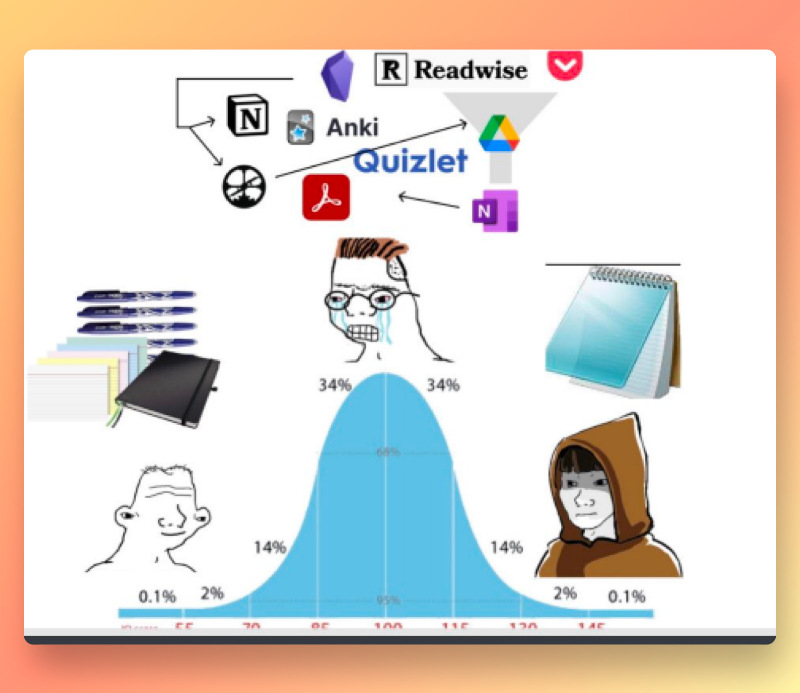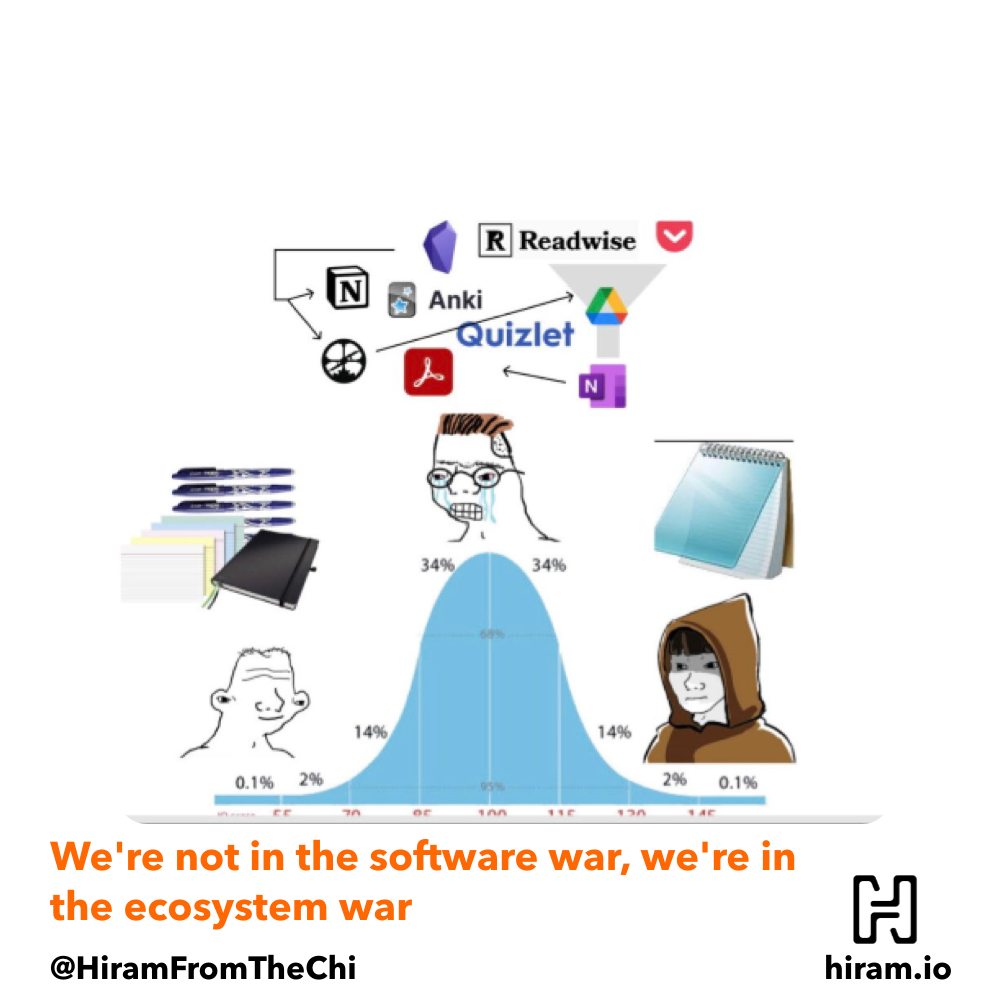Facebook's biggest competitor is Apple iMessage. Not Twitter, not Snapchat, not even TikTok. Why? Because that's where the conversations are.
Why did Facebook buy WhatsApp? By now you've probably seen commercials advertising WhatsApp as an end-to-end encrypted (E2EE) messenger. And it may be—but what's the "end" in this scenario? Is anything that's owned and/or run by Facebook really private? Spoiler alert: Nope. And yes, your WhatsApp messages are being read by Facebook.
Facebook's main utility now is FB Groups, and FB Marketplace. It's not a place for status updates like back in the day.
Task managers, note-taking apps, and even some project management apps are not really in competition with other standalone apps.
You know what they're really competing against? Apple Notes and Apple Reminders. The built-in task management and note-taking system that comes with every single Apple device on all three of their operating systems—iOS, iPadOS, and macOS.
This built-in ecosystem prevents you from dreadfully having to create yet another account. It's another email/password combination to remember, another interface that you need to learn how to navigate, another person that you need to send an invite to if you need to collaborate on something...
Not on Apple's software. Just pop it open and jot down your thoughts. Create a quick note. Jot down your grocery list. Accessible across all your devices.
Even automations have made their way to all devices via the Shortcuts app.
You can have the most amazing app in the world that combines the best elements of ClickUp, Notion, Coda, Bear, Obsidian, Logseq, Roam, Workflowy, Joplin, Asana, Trello, Standard Notes, Cryptee, Evernote, or whatever else, but if you don't have that built-in ecosystem... it's gonna be tough.
Because not only are you competing on features, you're competing on the most difficult thing there is to change—human behavior.

Your software's amazing features become less significant and face a different challenge when users can't be bothered to log into your app, or even do little things, like place your app into their "Productivity" folder. So they don't even remember that you exist.
Or, they remember, but it's just not worth doing anything about it because all the other notes and action items are already in Apple Notes.
The same thing happens in the Google ecosystem. You're on Google Docs, Google Sheets, Google Keep, Google everything. Easy to dismiss other products, even if they have more/better features, because they're not nicely integrated without thinking about it. It "just works."
Facebook has also been working at building that ecosystem. They did it with the acquisition of Instagram, tapped into your conversations by acquiring WhatsApp, and the same thing with Oculus and the whole metaverse fiasco.
Final thoughts
In a world where companies are doing everything they can to lock us in, we need to be embracing open standards. The rise of cryptocurrencies and NFTs showed a promising inclination towards decentralization and shifting the power back to the people, rather than companies who create walled gardens.
And while the web3 movement was highjacked by blockchain and blockchain scams, the desire for an interoperable web can't be owned by anyone has never waned. Decentralization is possible without the blockchain, and breaking down walled gardens is possible by building and adopting open source software.
An interoperable software war breeds innovation, but an ecosystem war stifles it. The only ecosystem we should be immersed in is the open web.
If you have thoughts on this piece, I’d love to hear them.
- Web: hiram.io
- Rising Tide (blog): hiram.io/blog
- LinkedIn: @hiramfromthechi
- Twitter/X: @hiramfromthechi
- Medium: @hiramfromthechi
- Mastodon: @hiramfromthechi@mastodon.social

